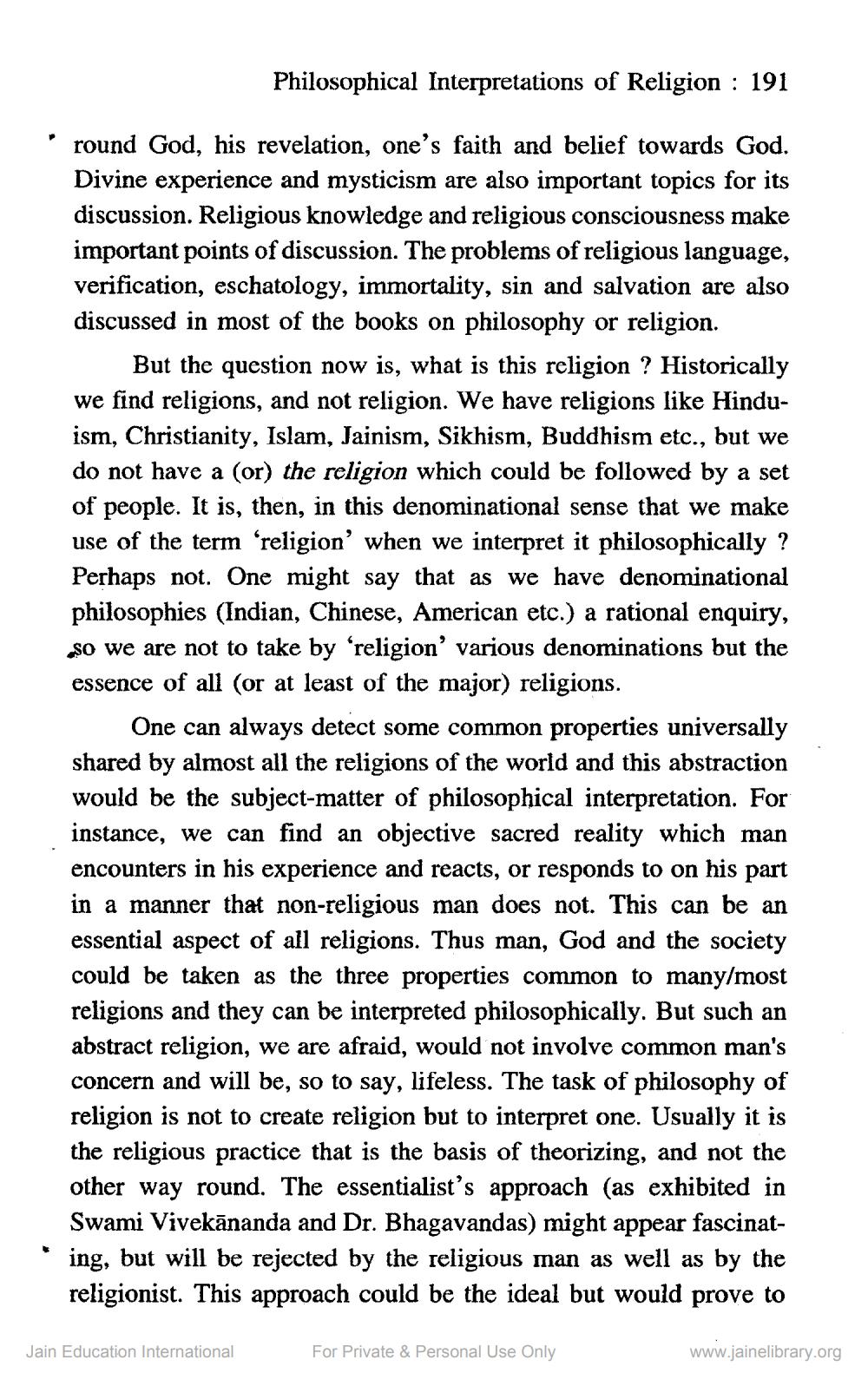________________
Philosophical Interpretations of Religion : 191
round God, his revelation, one's faith and belief towards God. Divine experience and mysticism are also important topics for its discussion. Religious knowledge and religious consciousness make important points of discussion. The problems of religious language, verification, eschatology, immortality, sin and salvation are also discussed in most of the books on philosophy or religion.
But the question now is, what is this religion? Historically we find religions, and not religion. We have religions like Hinduism, Christianity, Islam, Jainism, Sikhism, Buddhism etc., but we do not have a (or) the religion which could be followed by a set of people. It is, then, in this denominational sense that we make use of the term 'religion' when we interpret it philosophically? Perhaps not. One might say that as we have denominational philosophies (Indian, Chinese, American etc.) a rational enquiry, So we are not to take by 'religion' various denominations but the essence of all (or at least of the major) religions.
One can always detect some common properties universally shared by almost all the religions of the world and this abstraction would be the subject-matter of philosophical interpretation. For instance, we can find an objective sacred reality which man encounters in his experience and reacts, or responds to on his part in a manner that non-religious man does not. This can be an essential aspect of all religions. Thus man, God and the society could be taken as the three properties common to many/most religions and they can be interpreted philosophically. But such an abstract religion, we are afraid, would not involve common man's concern and will be, so to say, lifeless. The task of philosophy of religion is not to create religion but to interpret one. Usually it is the religious practice that is the basis of theorizing, and not the other way round. The essentialist's approach (as exhibited in Swami Vivekananda and Dr. Bhagavandas) might appear fascinating, but will be rejected by the religious man as well as by the religionist. This approach could be the ideal but would prove to
Jain Education International
For Private & Personal Use Only
www.jainelibrary.org




